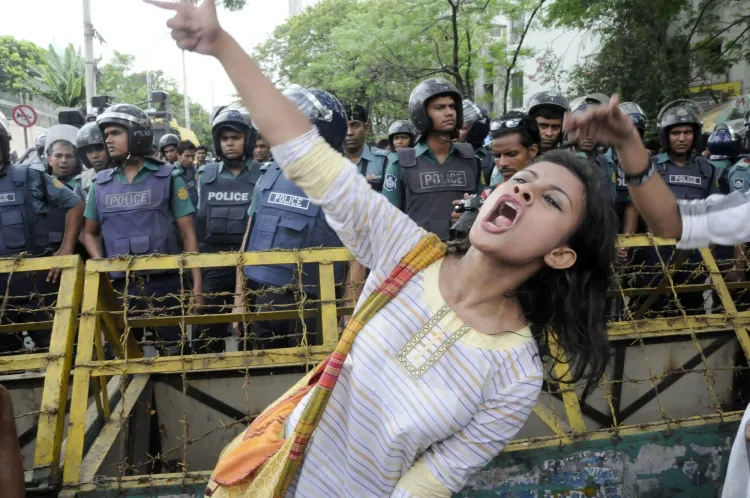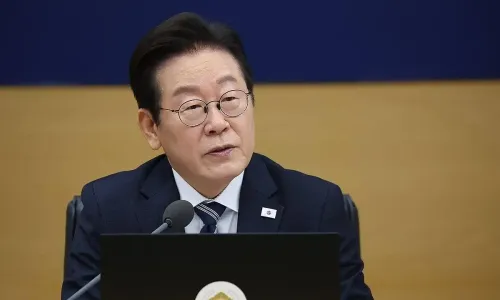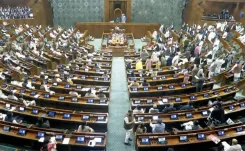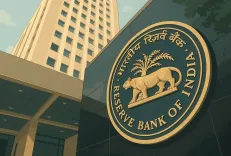Is the Yunus Government Harming Women's Progress in Bangladesh?

Synopsis
Key Takeaways
- Male-dominated decision-making processes hinder women's political participation.
- Negotiations over women's roles are often conducted without their input.
- Political parties are failing to prioritize gender equality.
- The upcoming elections face significant trust issues among voters.
- Women’s progress is at risk due to conservative political stances.
Dhaka, Aug 9 (NationPress) Samina Lutfa, an Associate Professor at the Department of Sociology at Dhaka University, expressed her concerns on Saturday regarding the male-dominated decision-making processes in Bangladesh. She compared the way men negotiate women's political participation, roles, and seat distributions to a fish market.
Her remarks were made during a roundtable discussion titled 'Women's Seats in the National Parliament and Women's Political Empowerment', organized by Bangladesh’s prominent daily Prothom Alo.
“When political parties attend commission meetings, it appears to be a boys' club. All the men are gathered, deciding the fate of women. We hear negotiations like, 'If you want 15, I can offer 10.' Is this how we should conduct politics? Men are determining how women can participate. This is utterly absurd,” Prothom Alo quoted Lutfa as saying.
“From a human rights perspective, political parties have failed to grasp the gravity of the situation. I believe they have made a significant historical error while adopting a very conservative stance, which they will eventually have to answer for,” she continued.
Lutfa also pointed out that no discussions took place regarding the report from the Women's Affairs Mission during the second dialogue of the National Consensus Commission, calling it a profoundly irresponsible act.
“The government assigned the Women's Commission this duty, and they fulfilled it. However, during the severe backlash against them, the government remained utterly silent, indicating their lack of support for women. They seem to side with those who aim to halt women's progress,” the professor stated.
Meanwhile, A M M Nasir Uddin, the Chief Election Commissioner (CEC) of Bangladesh, announced on Saturday that the Election Commission (EC) is preparing to conduct the upcoming general elections amidst various challenges.
He made these comments during a meeting focused on the national election at the Commission's regional office in Rangpur.
“Restoring public confidence in the electoral system is now a paramount challenge. Voter trust has diminished, making it a significant task to bring them back to polling stations,” Bangladeshi media outlet UNB reported the CEC as saying.
“The election date will be revealed two months before the schedule is announced,” he added.
Earlier this week, several major political parties in Bangladesh expressed differing opinions regarding Chief Advisor Muhammad Yunus's announcement about the election date.
While the Bangladesh Nationalist Party (BNP) welcomed the elections being held before Ramadan, the National Citizen Party (NCP) expressed doubts regarding the fairness of the elections.
Bangladesh has been engulfed in uncertainty about the next general elections since the democratically elected government led by former Prime Minister Sheikh Hasina was ousted during violent protests last year.
The parties that joined forces with Yunus to remove Hasina are currently in conflict over reform proposals and the timing of the upcoming elections.










